
Kód: 04557104
Media Communication
Autor James Lull
Over the past century and with varying degrees of success, China has tried to integrate Tibet into the modern Chinese nation-state. In this groundbreaking work, Gray Tuttle reveals the surprising role Buddhism and Buddhist leaders ... celý popis
- Jazyk:
 Angličtina
Angličtina - Vazba: Pevná
- Počet stran: 216
Nakladatelství: Columbia University Press, 1995
- Více informací o knize

Mohlo by se vám také líbit
Dárkový poukaz: Radost zaručena
- Darujte poukaz v libovolné hodnotě a my se postaráme o zbytek.
- Poukaz se vztahuje na celou naši nabídku.
- Elektronický poukaz vytisknete z e-mailu a můžete ihned darovat.
- Platnost poukazu je 12 měsíců od data vystavení.
Více informací o knize Media Communication
Nákupem získáte 347 bodů
 Anotace knihy
Anotace knihy
Over the past century and with varying degrees of success, China has tried to integrate Tibet into the modern Chinese nation-state. In this groundbreaking work, Gray Tuttle reveals the surprising role Buddhism and Buddhist leaders played in the development of the modern Chinese state and in fostering relations between Tibet and China from the Republican period (1912-1949) to the early years of Communist rule. Beyond exploring interactions between Buddhists and politicians in Tibet and China, Tuttle offers new insights on the impact of modern ideas of nationalism, race, and religion in East Asia.After the fall of the Qing dynasty in 1911, the Chinese Nationalists, without the traditional religious authority of the Manchu Emperor, promoted nationalism and racial unity in an effort to win support among Tibetans. Once this failed, Chinese politicians appealed to a shared Buddhist heritage. This shift in policy reflected the late-nineteenth-century academic notion of Buddhism as a unified world religion, rather than a set of competing and diverse Asian religious practices. While Chinese politicians hoped to gain Tibetan loyalty through religion, the promotion of a shared Buddhist heritage allowed Chinese Buddhists and Tibetan political and religious leaders to pursue their goals. During the 1930s and 1940s, Tibetan Buddhist ideas and teachers enjoyed tremendous popularity within a broad spectrum of Chinese society and especially among marginalized Chinese Buddhists. Even when relationships between the elite leadership between the two nations broke down, religious and cultural connections remained strong. After the Communists seized control, they continued to exploit this link when exerting control over Tibet by force in the 1950s. And despite being an avowedly atheist regime, with the exception of the Cultural Revolution, the Chinese communist government has continued to recognize and support many elements of Tibetan religious, if not political, culture.Tuttle's study explores the role of Buddhism in the formation of modern China and its relationship to Tibet through the lives of Tibetan and Chinese Buddhists and politicians and by drawing on previously unexamined archival and governmental materials, as well as personal memoirs of Chinese politicians and Buddhist monks, and ephemera from religious ceremonies.
 Parametry knihy
Parametry knihy
Zařazení knihy Knihy v angličtině Society & social sciences Society & culture: general Media studies
3473 Kč
- Plný název: Media Communication
- Podnázev: A Global Approach
- Autor: James Lull
- Jazyk:
 Angličtina
Angličtina - Vazba: Pevná
- Počet stran: 216
- EAN: 9780231102643
- ISBN: 023110264X
- ID: 04557104
- Nakladatelství: Columbia University Press
- Hmotnost: 454 g
- Rozměry: 216 × 140 × 16 mm
- Datum vydání: March 1995
Oblíbené z jiného soudku
-

Confessions Of An Advertising Man
410 Kč -

Amusing Ourselves to Death
399 Kč -

Contagious
234 Kč -
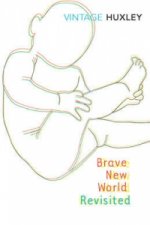
Brave new World Revisited
276 Kč -

Medium is the Massage
276 Kč -

Pre-Code Hollywood
633 Kč -
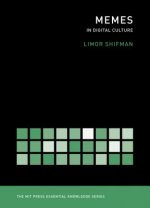
Memes in Digital Culture
365 Kč -
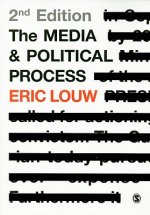
Media and Political Process
948 Kč -
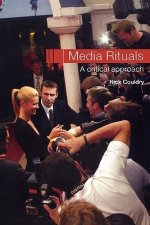
Media Rituals
1229 Kč -

Irresistible
265 Kč -

Buyology
327 Kč -

Amusing Ourselves to Death
336 Kč -

Imagination and Interpretation
412 Kč -

To Save Everything, Click Here
306 Kč -

Television Culture
1460 Kč -

Screen Damage - The Dangers of Digital Media for Children
699 Kč -

Four Arguments for the Elimination of Television
412 Kč -

Hollywood and the CIA
1641 Kč -

Game Design Deep Dive
1401 Kč -

Filling the Void
301 Kč -

Mass Media in the Post-Soviet World - Market Forces, State Actors, and Political Manipulation in the Informational Environment after Communism
1196 Kč -

Media and Audiences: New Perspectives
1159 Kč -

Stack
1175 Kč -

Filter Bubble
316 Kč -

Hidden Persuaders
373 Kč -

Txtng: The Gr8 Db8
262 Kč -

Spotify Teardown
472 Kč -
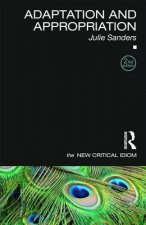
Adaptation and Appropriation
847 Kč -

Internet Does Not Exist
473 Kč -

American Silent Film
553 Kč -

Understanding Esports
1416 Kč -

Tubes
303 Kč -

Proteus Paradox
941 Kč -

Social Organism
475 Kč -

Doing News Framing Analysis
1852 Kč -

Persuasive Games
960 Kč -

Taking South Park Seriously
893 Kč -

Media Student's Book
1282 Kč -

Remediation
849 Kč -

Half-Real
746 Kč -

Pola Negri
997 Kč -

Field Guide to Lies
396 Kč -

Ludotopia - Spaces, Places, and Territories in Computer Games
895 Kč -

Screenwise
1008 Kč -

Fake News
1113 Kč -

Scriptwriting for Film, Television and New Media
1230 Kč -

Beyond Powerful Radio
1864 Kč -

Philosophy of Clint Eastwood
1351 Kč -

Running the Show
1265 Kč
Osobní odběr Praha, Brno a 12903 dalších
Copyright ©2008-24 nejlevnejsi-knihy.cz Všechna práva vyhrazenaSoukromíCookies




 Vrácení do měsíce
Vrácení do měsíce 571 999 099 (8-15.30h)
571 999 099 (8-15.30h)